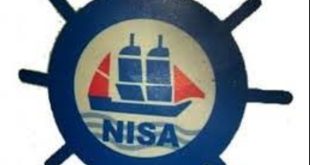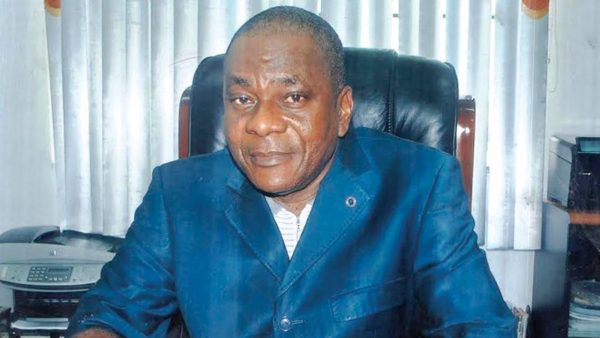
By Kenneth Jukpor
Nigerian Shippers’ Council (NSC) and the management of Port of Antwerp International has entered partnership for training and sharing innovative concepts to develop Nigerian ports.
Both organizations struck this partnership during a courtesy visit by the Manager, Port Projects, Port of Antwerp International, Mr. Philippe Droesbeke to NSC headquarters, earlier today.
Droesbeke said the visit was to share Port of Antwerp’s experiences with other ports abroad as the company has set-up a subsidiary dealing with consultancy in the management of ports and different fields on terminal and ports processes.

His words: “We are a daughter company of the Port of Antwerp and we are really internationally focused. We want put our experiences . We have an MoU with Nigerian Ports Authority (NPA) and work with them on different aspects, but we are also partnering several private companies to improve port process.
“A reference within the maritime world is our training center, Apex. Apex isn’t an academic center but a training center combining practice with theory. It started decades ago and we have over 70,000 alumni.”
According to Droesbeke, multimodal connection is the solution to the congestion at Nigerian ports, urging the country to shift from the over dependence on roads for cargo evacuation.
He stated that the Port of Antwerp handles over 140 million tonnes of cargoes annually, but deploys multimodal approach for cargo evacuation with rail carrying 50 percent, barges responsible for 40 percent, while the roads only handle 10 percent.
Droesbeke also stressed that logistics infrastructure should be developed in Nigeria to meet the needs and location of exportable goods.
“If perishables are on the west side in the country, development shouldn’t be focused on the eastern part of the country. It will not be logical to do that at all,” he added.
While corroborating Droesbeke’s views on port development and supporting infrastructure, the Executive Secretary of NSC, Mr. Hassan Bello stated that Nigeria has identified these issues and prioritizes them in the development of new deep seaports.
“As to consultancy, we are always interested in such partnership. On interconnectivity, we have seaports and we have inland ports which we call dry ports. We are interested in having these dry ports meet international standards and expectations. They should also boost the Nigerian economy, especially for our export, we want to make the dry ports export centers.”
“There are others things that must be there at seaports and dry ports like; consolidation centers, stripping of containers, ware housing, companies that processes and add value to agricultural products and also packaging companies,” the NSC boss said.
Bello agreed that there is a need for NSC to have a study on the other values that will make seaports and dry ports more efficient, and a holistic improvement in the country’s logistics chain to reduce transport cost and also have competitive products in the global market.
“Nigerian products suffer from packaging sometimes and so many other things. This is also one area which we may have interest because we have to correct it,” Bello added.
Also speaking during the courtesy visit, the Executive Secretary, Nigerian-Belgian Chamber of Commerce in Lagos, Paulette Van Trier expressed delight at the meeting, noting that the Chamber has been working assiduously to improve trade between both countries.
Her words: “We are trying to ensure Nigerian export produce get to the ports timely so that they can get to the international market and spread all around the world. We hope that we can work together, have a positive partnership and improve exports from Nigeria, thanks to Shippers’ Council.”
“As a Chamber, we aren’t asking for money. We just want farmers and other exporters to know how the process is done globally. We are providing Nigerians with examples via teachings and trainings to make people aware of global best standards and practices.”
 MMS PLUS NG – Maritime, Aviation, Business, Oil and Gas News Online Newspaper with coverage in Maritime, Oil and Gas, Aviation, Power and Energy as well as Financial News
MMS PLUS NG – Maritime, Aviation, Business, Oil and Gas News Online Newspaper with coverage in Maritime, Oil and Gas, Aviation, Power and Energy as well as Financial News









